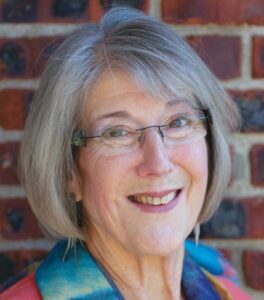A Centenarian Gives Advice To The President

“Hello, I am 100 years old. Can someone from your staff help me write to President Obama?”
We received this phone call in 2008, and so began our relationship with Eleanor Mills Hatler (not her real name). By all regards, she was an extraordinary woman, but was she truly that unusual? There were 53,000 centenarians in the U.S. 2010, 90,000 in 2020, and it’s estimated there will be 130,000 by 2030. This increase is slow compared to what comes later. In 2046, when the first group of surviving baby boomers reach 100, numbers really start to soar. By 2060, there will be over 603,000 people over 100!
But back to Eleanor Hatler. Barak Obama had just been elected, and Eleanor thought he needed advice about Universal Health Care. She had extensive knowledge and strong feeling about it, as evidenced in the note typed by Karen (her Moving Solutions helper) from Eleanor’s handwritten notes.
“In 1912, when I was five years old, the American Association of Labor Legislation established a Committee on Social Insurance, often noted as the beginning of the health care debate, and we are still not there. We need a fresh approach to America’s problems and our health care system. Other industrialized nations have success in providing universal health care but we don’t…”.
“America has lost its way to universal health care,” she continued. “There are all the combinations of the alphabet (HMOs) that changed health care from a necessary government human service to another American big business. …”
She concluded that a presidential proclamation will be required to make change, because too many politicians get money for their campaigns from the present system. “Wellness – not illness — must be our goal.”
A few years later, with Karen’s help and encouragement, Eleanor went on to develop a blog. Excerpted from her first blog post.
Over 100. That is my age, actually 103 years old. I am writing this blog with the help of my friend Karen. I don’t know about computers and am not used to all the new technology. But I have history and thoughts to share, especially about my long-term interest and work for universal health care and a single-payor system for this country….
Eleanor went on to describe her growing up in New York’s Lower East Side, graduating from college in 1928 in the midst of the depression, and finding her niche in retail, where she stayed for the next 30 years. But she returned to her passion – universal health insurance.
“I have lived through U.S. Presidents #26 through #44. I had hoped after Medicare passed that I would see the expansion of Medicare for all Americans. I am still waiting. How much longer can I wait?”
Eleanor was not one to give up. A year later she posted again:
“The most common response from people of all ages to my age is amazement. I am amazed myself. One. Zero. Three. These are just numbers. I am still me. I can’t do as much as I used to, but I am still me. I am hanging in there because of what I still need to do and continue to share my point of view about the wrong direction we are taking to solve our problems, especially health care.
How do you do it? They want to know the secret. They want tips. I really don’t know. I just do it. My sister Mary Ellen died at 102 and my sister Rose died at 98. Not only do I have good genes, but I have a great primary care physician who continues to treat me like a human being. Always has.”
It’s not surprising that Eleanor’s sisters were long-lived as well. The New England Centenarian Study found that:
- Exceptional longevity runs strongly in families,
- Most centenarians have little disability until their early or mid-nineties
- Centenarian siblings likely have a genetic variance that decreases the risk for age-related diseases, such as heart disease, stroke, cancer, diabetes, and Alzheimer’s Disease.
Even for a healthy 103-year old, life can be challenging. In her second blog post, Eleanor wrote:
“Being 103 is a blessing and a curse. Getting older is not easy. I eat very slowly and it is hard to chew. I walk with a walker, my hearing is gone and my eyesight is failing. I am not my own boss anymore. And my money is being deleted. But I am in a retirement community that will always take care of me. So I am lucky for that.”
Eleanor moved to assisted living at 104, at her own request, and then back to independent living because she said assisted living was not adequately stimulating. She died at 107.
Yes, Eleanor was exceptional, not so much for her longevity as for her passion for health equality and accessibility for all. She had strong opinions and felt they mattered. She had purpose. She had a physician she trusted and who treated her with respect, and a living environment that facilitated independence but provided additional care as needed.
Let’s live like Eleanor. We won’t all live to 107, but we can all live with dignity, passion, and purpose.

0 Comments